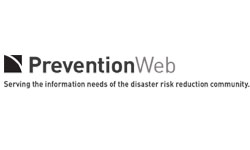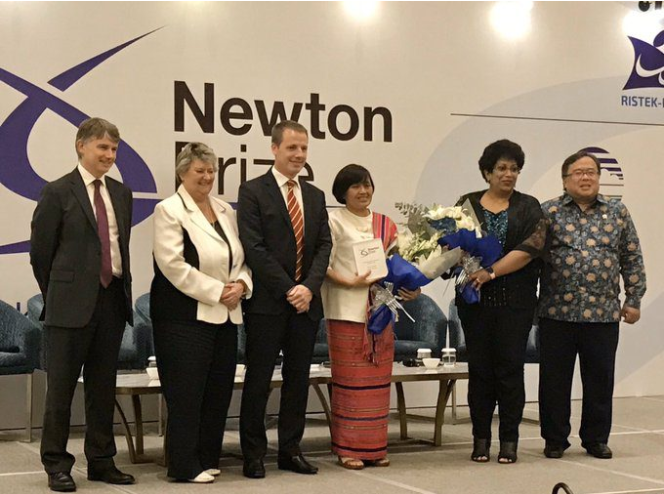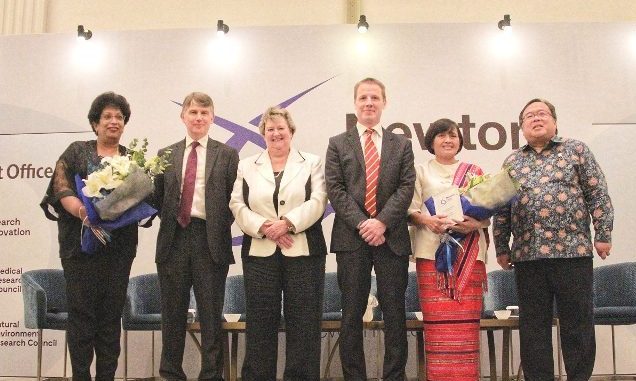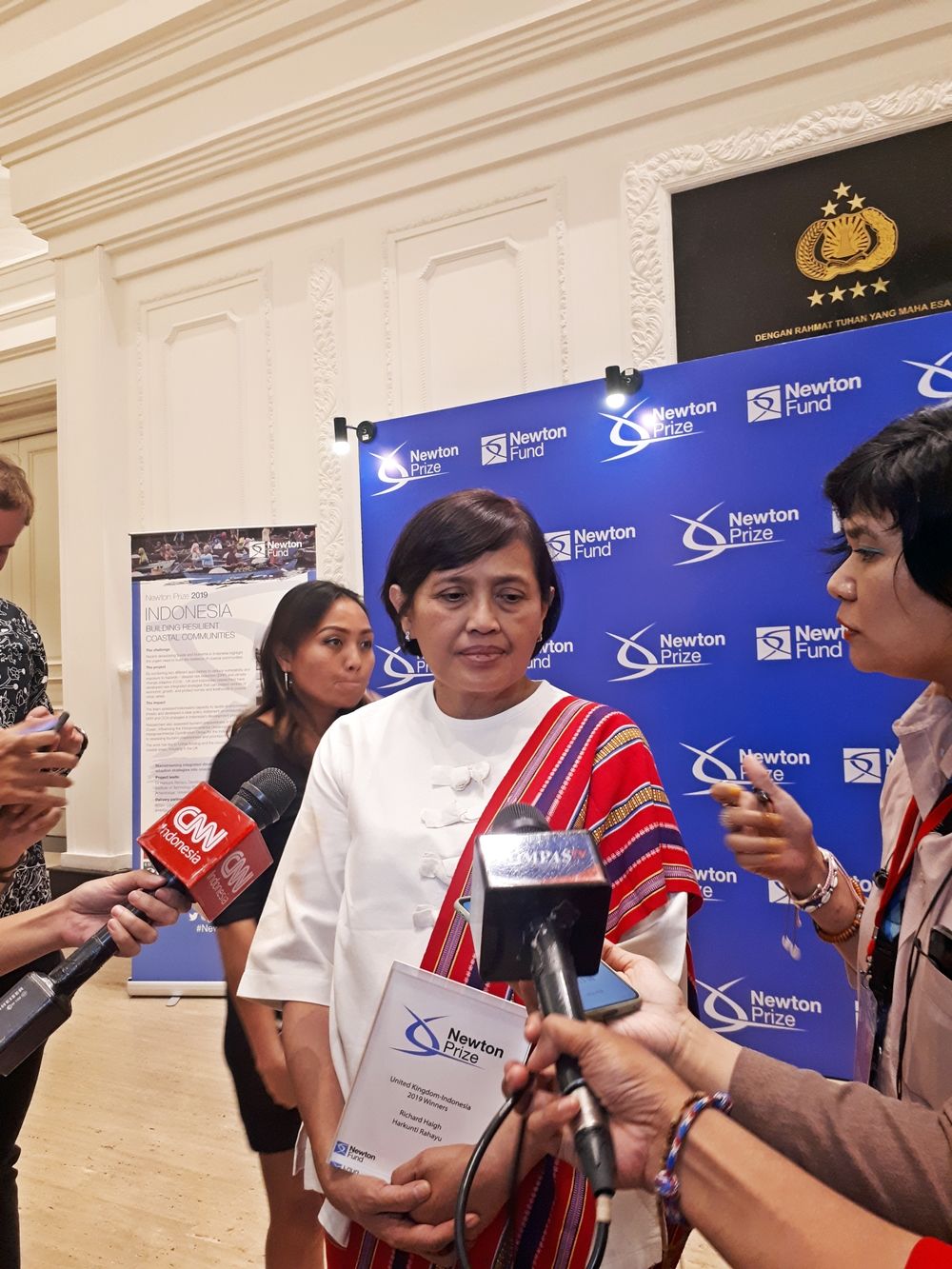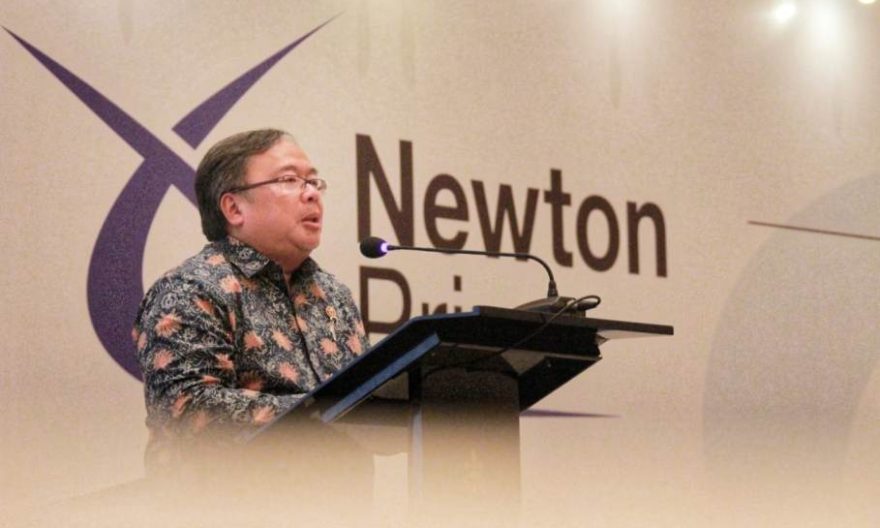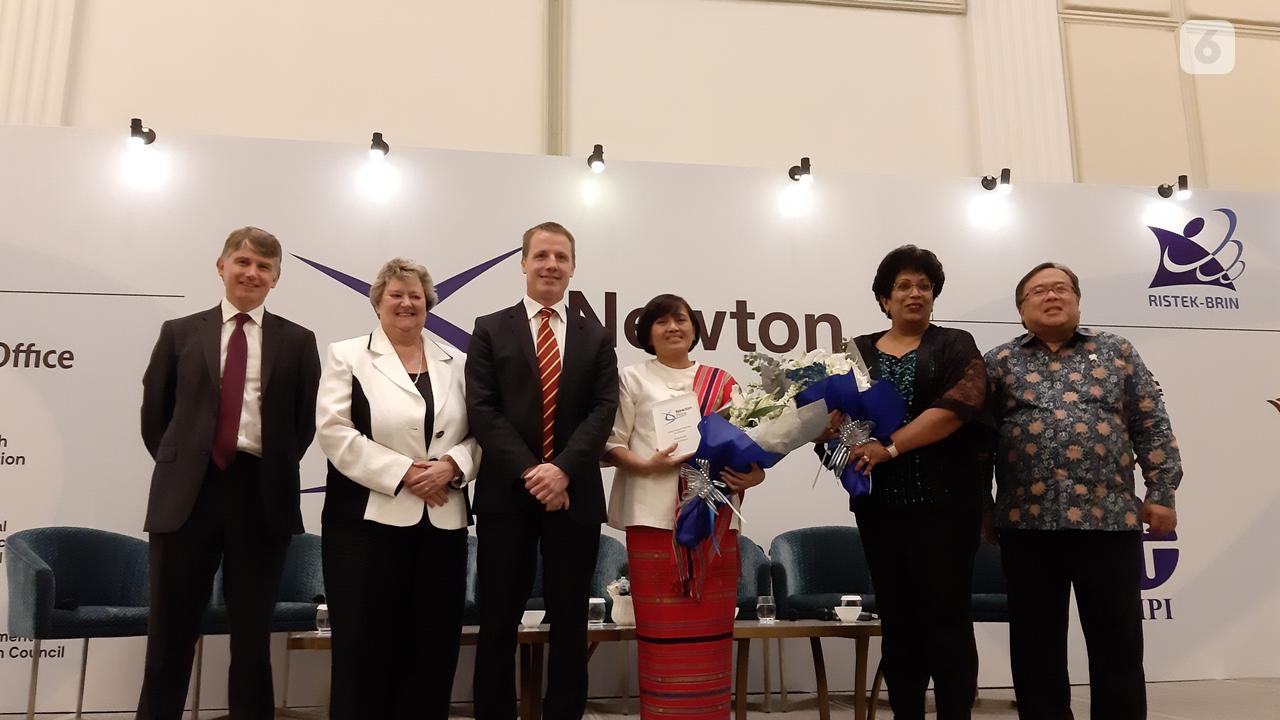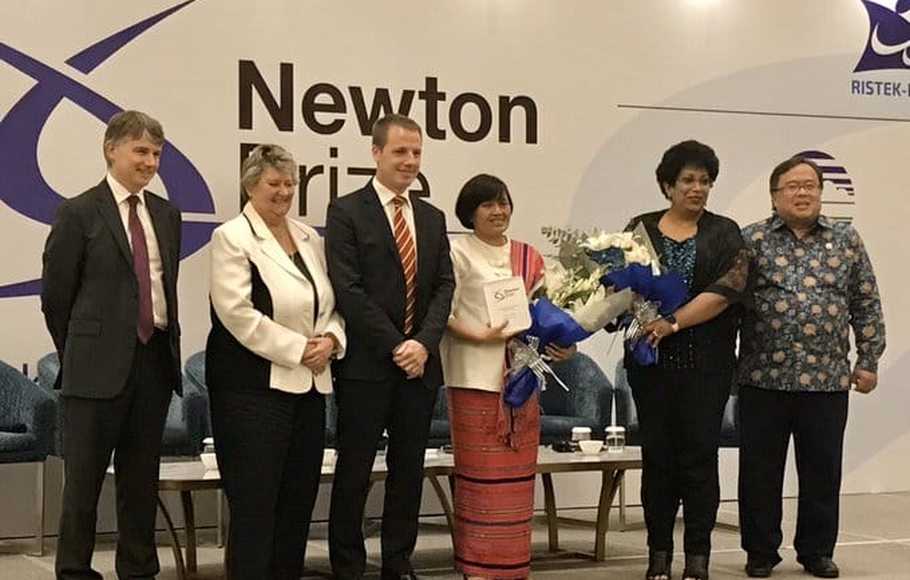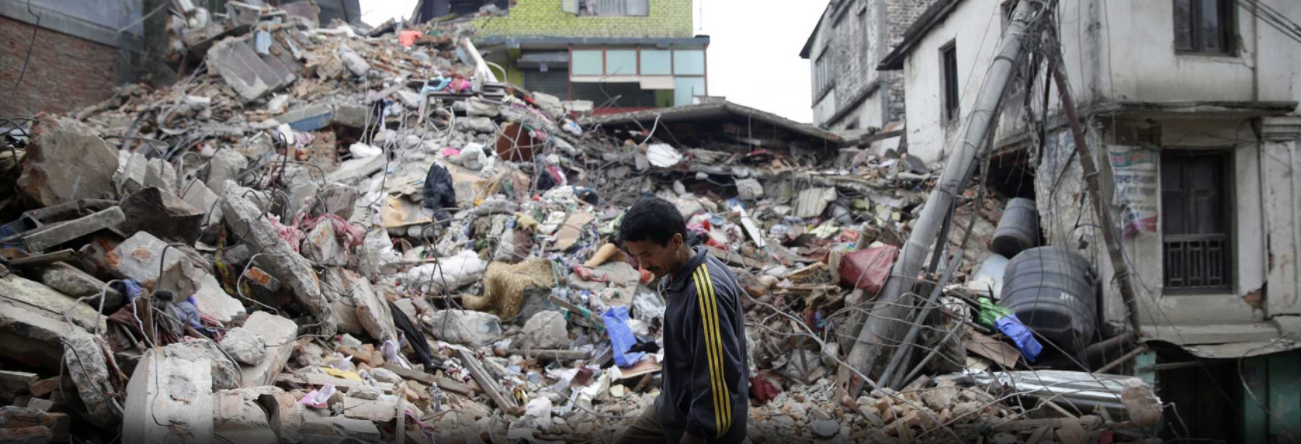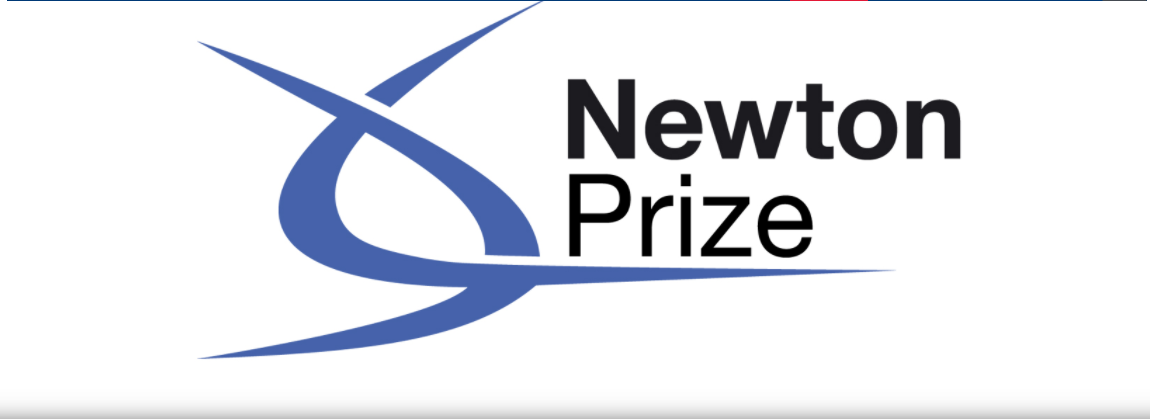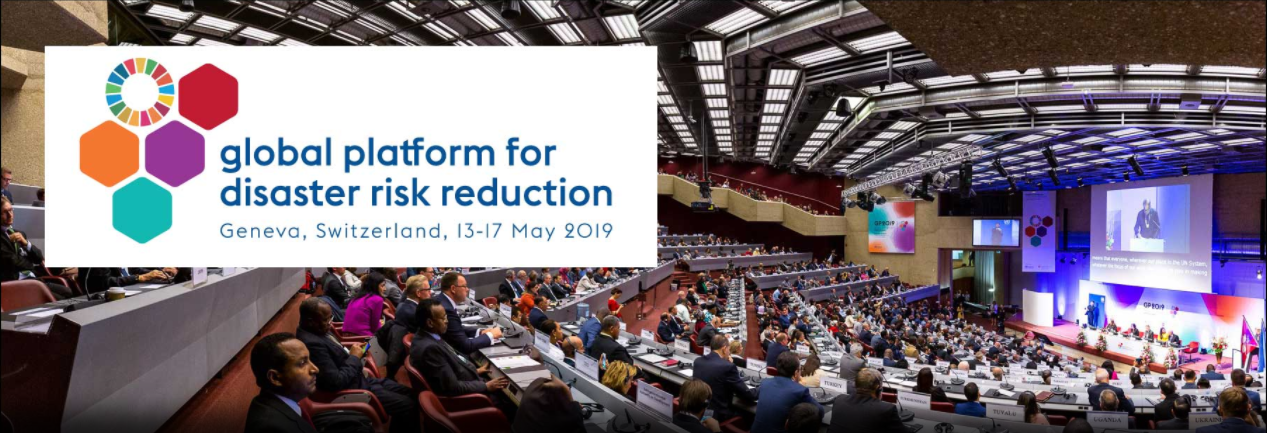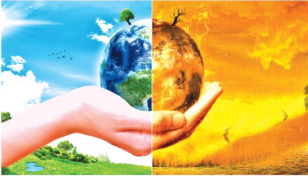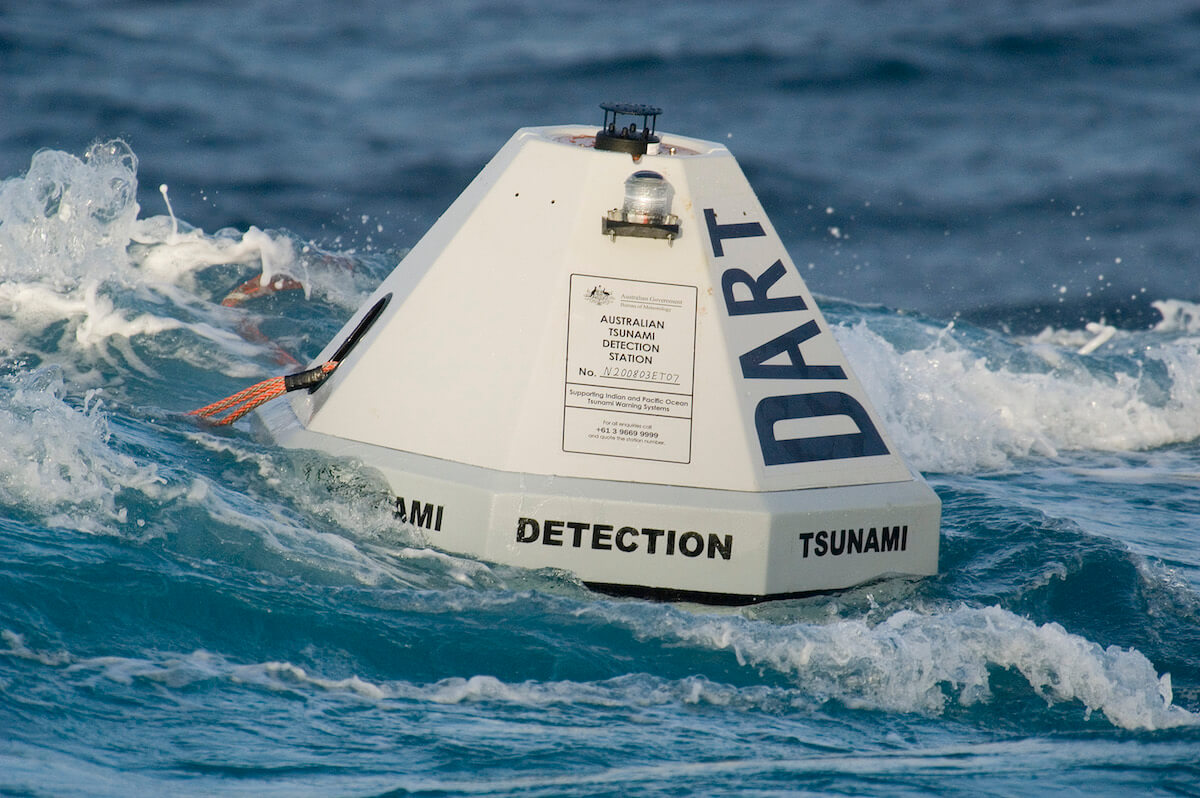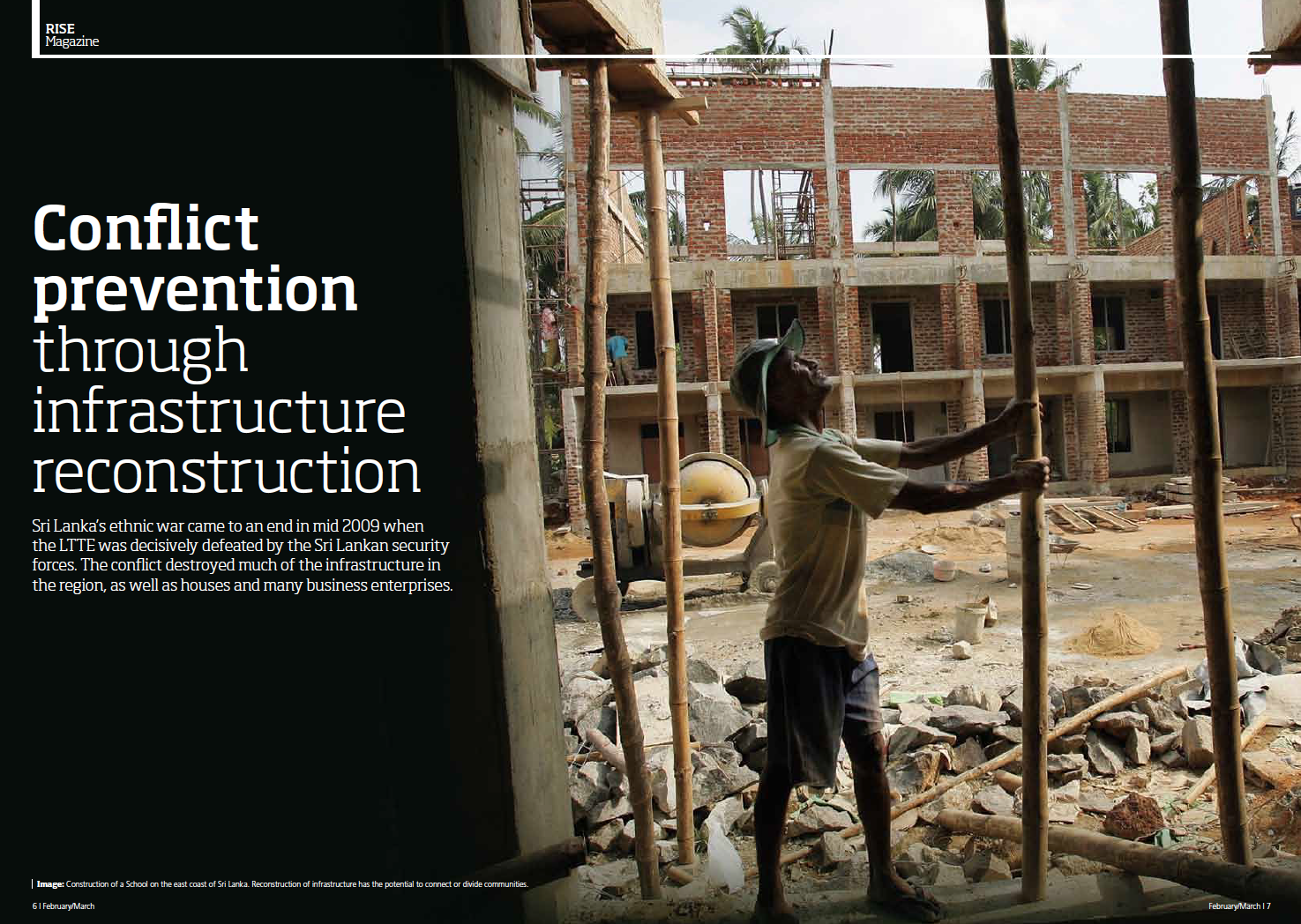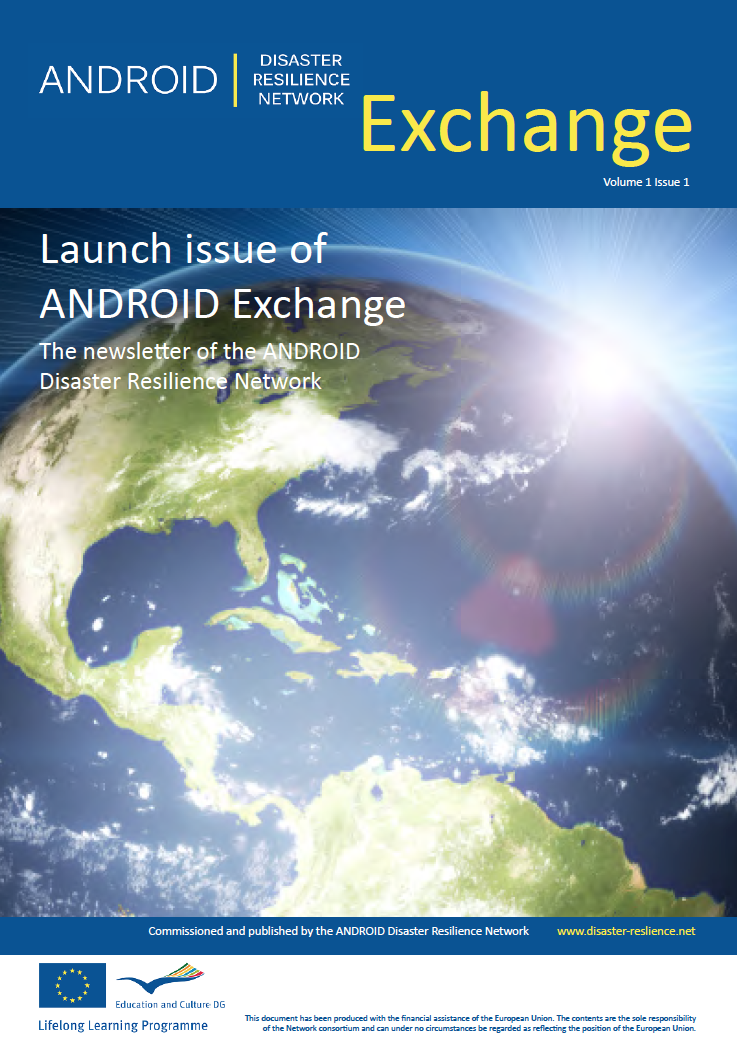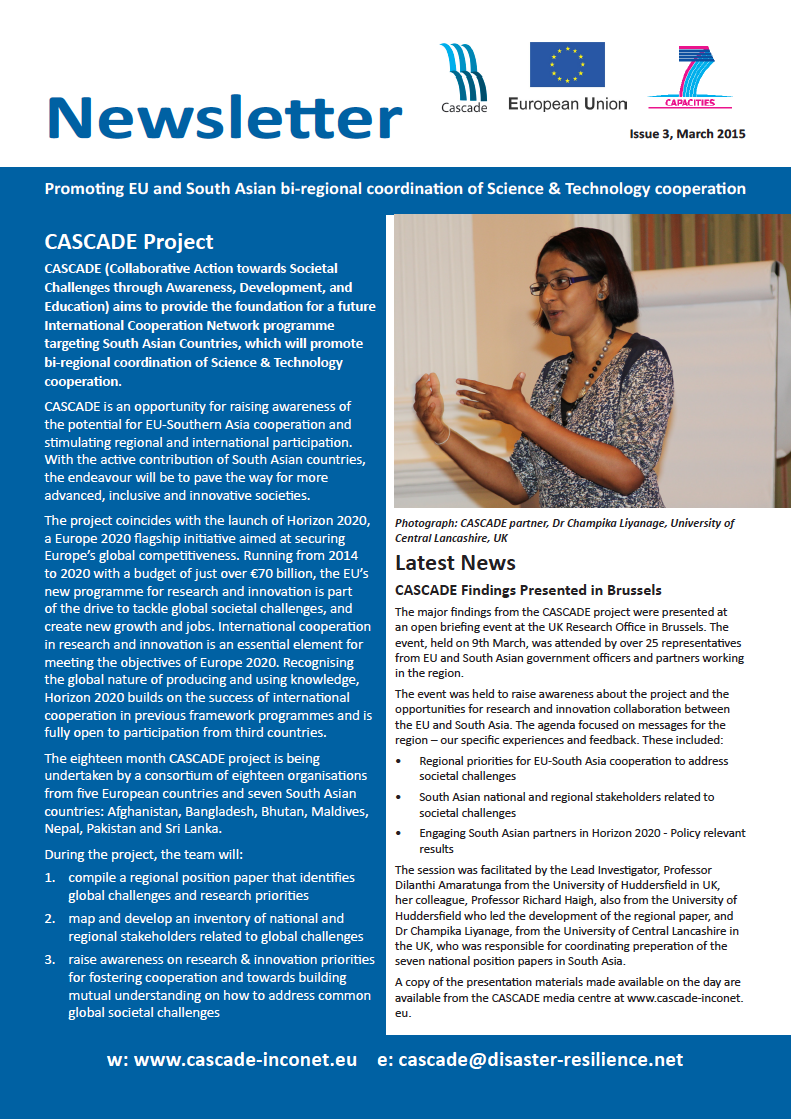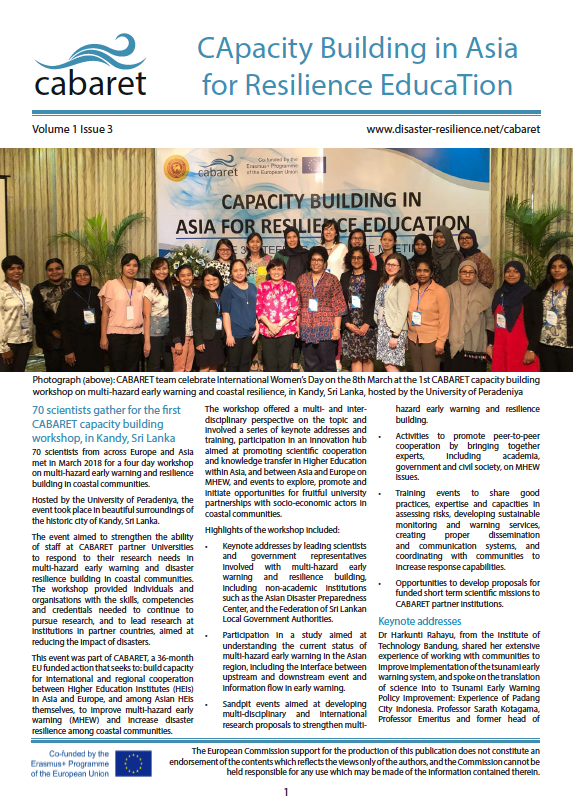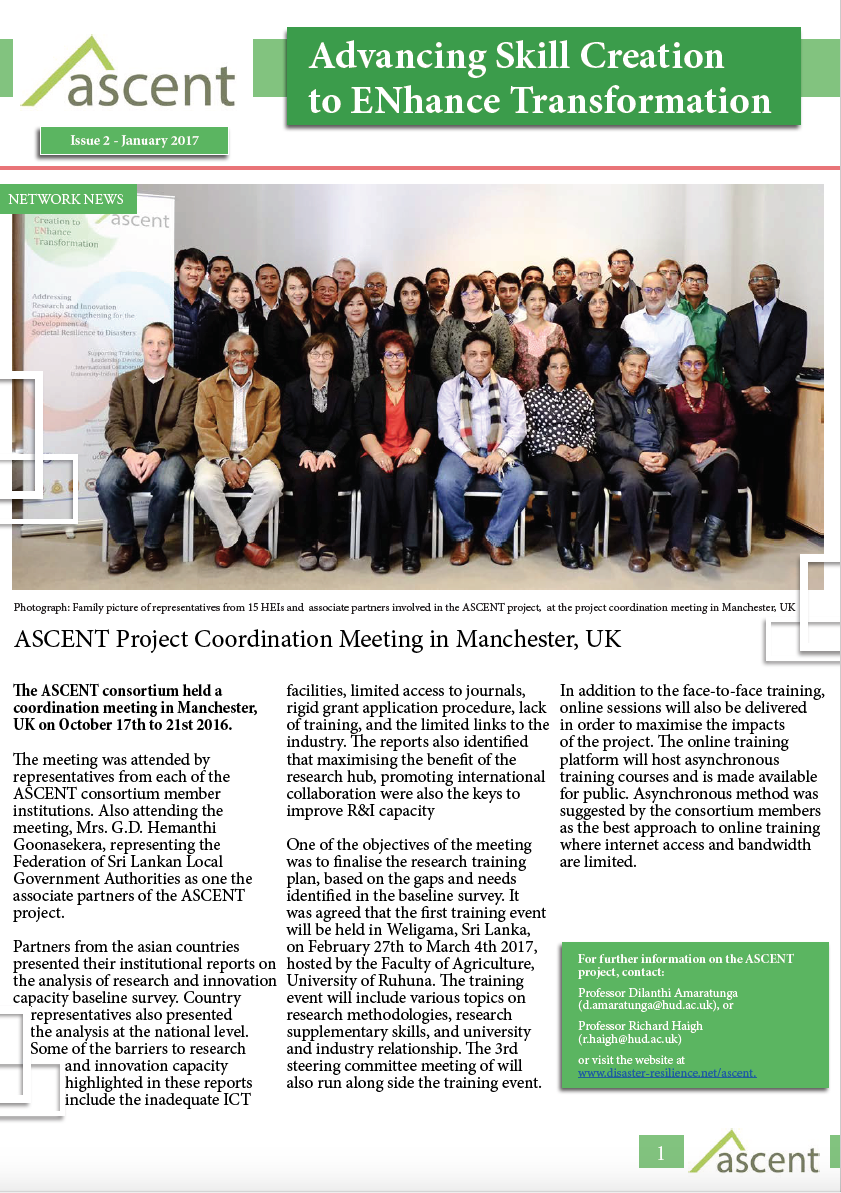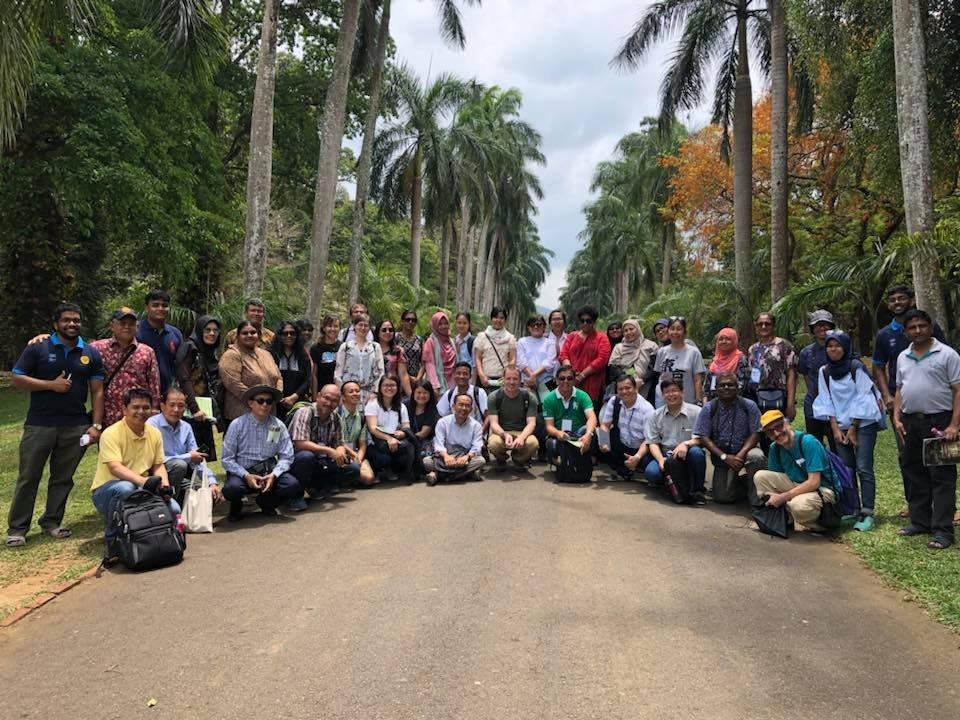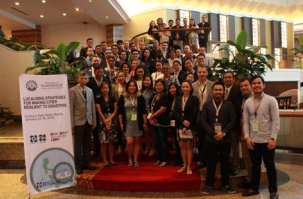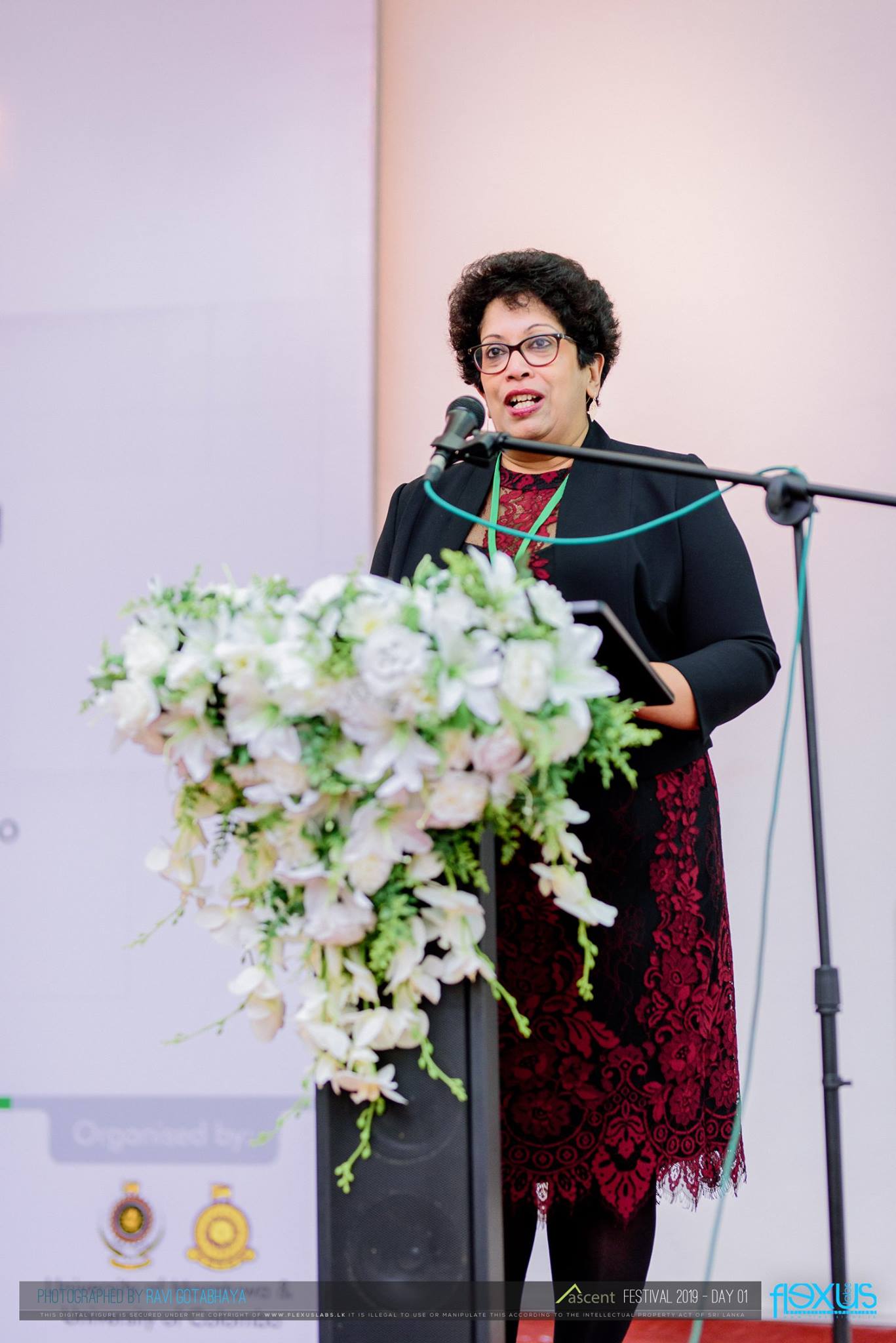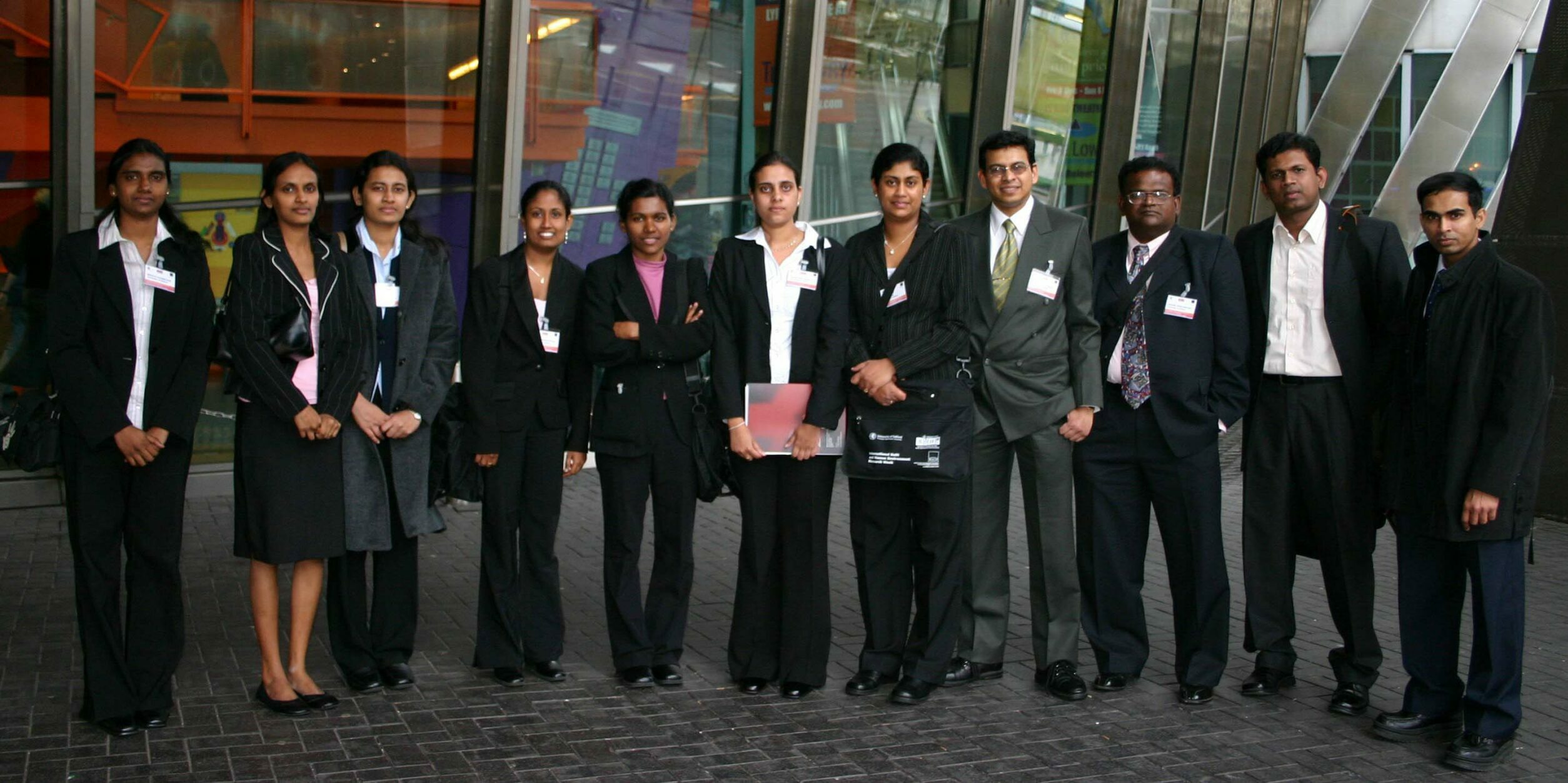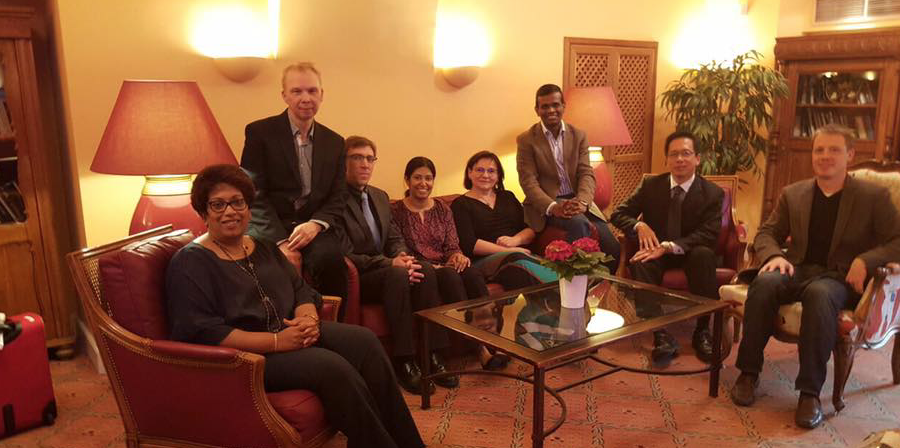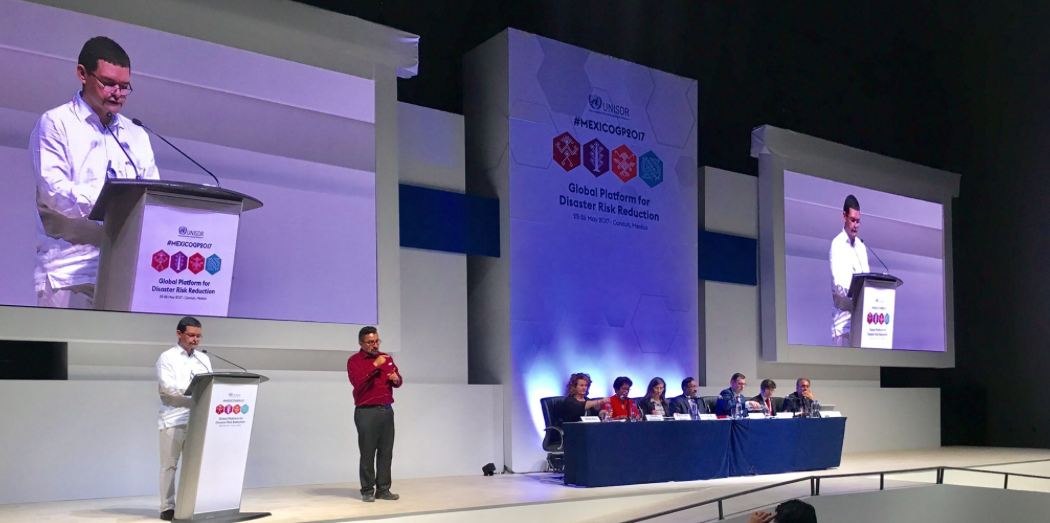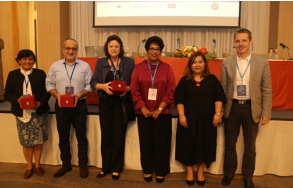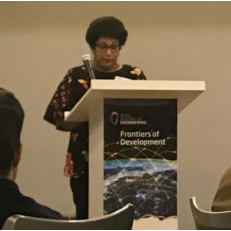MEDIA
and Outreach
Latest
MEDIA
The ongoing COVID-19 outbreak is an unprecedented event in modern human history. The UNDRR (United Nations Office for Disaster Risk Reduction) Sendai Framework for Disaster Risk Reduction 2015-2030 (SFDRR) [1] highlights biological hazards, such as the COVID-19 pandemic, as a major risk for the 21st century. While the World Health Organisation has declared COVID-19 a pandemic, its underlying factors, vulnerabilities and impacts go far beyond the health sector. It is, in fact, an example of systemic risk: when a hazard leads not only to negative effects in parts of the system but also threatens the failure of the entire system.
From PreventionWeb - The second Newton Prize 2019 winner has been announced at an event in Jakarta, Indonesia on Tuesday 14 January. The winning UK-Indonesia partnership is helping to protect coastal communities from the devastation caused by coastal hazards such as flooding and tsunamis. The research has improved Indonesia’s capacity to deal with these events through better communications and warning procedures.
Researchers from the University of Huddersfield and the Institute of Technology Bandung in Indonesia have improved Indonesia’s communications and warning procedures for coastal disasters such as flooding and tsunamis, as climate change is increasing the frequency and severity of extreme weather.
Explore about the Association of Disaster Risk Management Professionals, Sri Lanka.
Find out more about the full shortlist in the Newton Prize 2019 booklet.
In the announcement of the Newton Prize 2019, Selasa (14/1/2020), Dr. Harkunti Pertiwi Rahayu was named as one of the award winners. As reported by Kompas.com, Harkunti’s project with Richard Haigh and Dilanthi Amaratunga from Huddersfield University, England, were also awarded a prize of 200,000 pounds or equivalent to around Rp3.5 billion. Harkunti’s, Richard and Dilanthi’s research focuses on increasing the capacity of coastal areas in Indonesia to mitigate and manage disaster strategies. The committee decided to grant this project due to the extent of the impact given and the large possibility of its application in Indonesia.
Melalui Newton Fund, jumlah kolaborasi riset dan inovasi, antara Indonesia dan Inggris telah meningkat pesat sejak tahun 2014 sampai dengan 2019. Setidaknya 15 program kolaborasi riset dan inovasi telah dijalankan dari 22 proposal penelitian yang masuk.
Menteri Riset dan Teknologi (Menristek)/Kepala Badan Riset dan Inovasi Nasional (BRIN), Bambang P.S. Brodjonegoro, menghadiri perhelatan Newton Prize 2019 di Tribrata Dharmawangsa, pada Selasa (14/01). Kolaborasi riset dan inovasi Indonesia-Inggris dalam kerangka kerjasama Newton Fund dilakukan melalui upaya pendanaan bersama, untuk implementasi kolaborasi riset dan inovasi kelas dunia, yang tidak hanya berdampak global, namun juga memberikan kontribusi secara nyata pada peningkatan kesejahteraan masyarakat Indonesia dan Inggris.
Kerja sama penelitian ilmuwan Indonesia dan Inggris berhasil menyabet penghargaan Newton Prize 2019. Riset itu mengkaji dan meneliti kesiapan komunitas pesisir dalam menghadapi dampak perubahan iklim. Penelitian ini dipimpin Dr. Harkunti Rahayu dari Institut Teknologi Bandung dan Profesor Richard Haigh dari University of Huddersfield. Mereka mendapatkan sebagian pendanaan dari Newton Fund sebesar Rp18 miliar.
Kegiatan penelitian untuk mempersiapkan komunitas pesisir menghadapi dampak perubahan iklim sejak dini yang dipimpin oleh Dr Harkunti Rahayu dari Institut Teknologi Bandung dan Profesor Richard Haigh dari University of Huddersfield, berhasil memenangkan Newton Prize 2019. Dr Harkunti Rahayu dan timnya mendapatkan pendanaan dari Newton Prize yang jumlah totalnya mencapai satu juta poundsterling (setara Rp18 miliar). Pemenang diumumkan di acara Newton Prize Award di The Tribrata, Jakarta, (14/01/2019).
Kolaborasi penelitian terkait pembangunan ketahanan masyarakat pesisir dari peneliti Institut Teknologi Bandung (ITB) dan University of Huddersfield berhasil meraih Newton Prize 2019 kategori Country Prize. Kolaborasi penelitian ini dinilai berhasil mengembangkan strategi baru untuk melindungi rumah, bisnis dan infrastruktur di daerah perkotaan pesisir dengan lebih baik.
The work will benefit at risk areas of coastal Indonesia through the introduction of new advanced warning and preparedness measures WITH their
Sebuah kolaborasi antara ilmuwan Indonesia dan Inggris untuk mempersiapkan komunitas pesisir menghadapi dampak perubahan iklim sejak dini berhasil memenangi sebagian pendanaan dari Newton Prize dengan nilai total Rp 18 miliar. Pemenang diumumkan dalam acara Newton Prize Award di Jakarta, Selasa (14/1/2020).
Peneliti Institut Teknologi Bandung (ITB) Ir. Harkunti Pertiwi Rahayu, Ph.D. menjadi juara pada Newton Prize di Indonesia. Ia menang berkat penelitian bersama Profesor Richard Haigh dari Universitas Huddersfield. Dengan menggabungkan pendekatan Pengurangan Risiko Bencana (PRB) dan Adaptasi Perubahan Iklim (API), peneliti Indonesia dan Inggris itu mengembangkan strategi baru untuk melindungi daerah pesisir.
UN Office for Disaster Risk ReductionEUROPEAN SCIENCE AND TECHNOLOGY ADVISORY GROUPThe United Nations Office for Disaster Risk Reduction’s European Science and Technology
The Newton Prize celebrates outstanding international research partnerships and is an annual £1million fund award TWO Professors from the University of Huddersfield’s School of Art,
Professors Richard Haigh and Dilanthi Amaratunga, of the University’s Global Disaster Resilience Centre, spoke at the sixth session of the Global Platform for
Countries around the Indian Ocean are benefitting from the experience and advice of Professors Dilanthi Amaratunga and Richard Haigh on how they best prepare to cope with a potentially disastrous tsunami.
Professor Siri Hettige of Unviersity of Colombo discusses the impact of the international project ASCENT to the disaster management sector of Sri Lanka, under the theme climate change, natural disasters and societal resilience.
The world's leading climate scientists have sounded the warning call, giving us an ultimatum to change the world. In October this year, we were given 12 years to change; to change the way we think and the way we consume -- simply put, the way we live.
The disaster risk research has been granted £541,655 and will ultimately improve the lives of the 3.5 million people living along the
Countries around the Indian Ocean are benefitting from the experience and advice of Professors Dilanthi Amaratunga and Richard Haigh on how they best prepare to cope with a potentially disastrous tsunami. An estimated 270,000 people in the region of the Indian Ocean died as a result of the undersea earthquake that struck off the northern tip of Sumatra in Indonesia on 26 December 2004. The 9.1 magnitude quake set off a tsunami that devastated coastal regions in over 20 countries, and reached as far away as Tanzania and South Africa.
The training was entitled Indian Ocean Wave 2018 for Sri Lanka and was an Indian Ocean-wide tsunami warning and communications exercise The
The Building Resilience Conference is an annual international conference exploring resilience as a useful framework of analysis for how society can cope with the threat of natural and human induced hazards. The 2018 edition is organised by the University of Lisbon, the University of Coimbra (Portugal) and the Global Disaster Resilience Centre at the University of Huddersfield (UK), in association with the United Nations Office for Disaster Risk Reduction (UNISDR).

